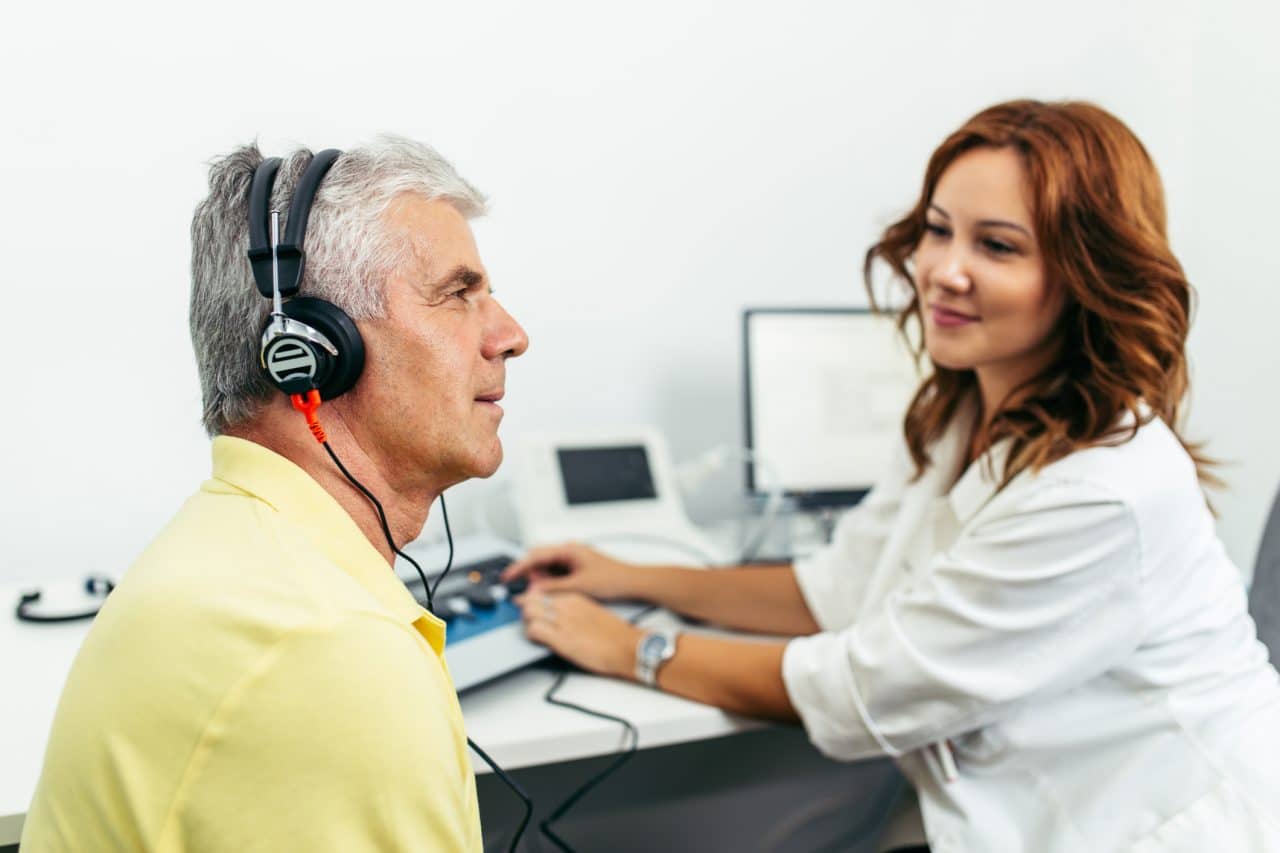Seeking treatment for hearing loss is important for your physical, mental and emotional wellbeing. Unfortunately, many people put off treatment for their hearing loss due to fear of stigma around hearing aids and looking “old.” Below we dispel some myths about hearing loss and discuss the importance of protecting your hearing, getting diagnosed and treated early, and seeking the appropriate follow-up care.
Facts About Hearing Loss

It’s not just older people who develop hearing loss. According to the World Health Organization (WHO), over 1 billion young people are at risk of developing permanent hearing loss, in part due to unsafe listening practices.
The WHO estimates that currently there are 430 million people (5% of the world’s population) who have hearing loss that requires treatment. The organization projects this number will jump to 700 million people (10% of the world’s population) by the year 2050.
How to Protect Your Hearing
Follow the tips below to protect your hearing from noise-induced hearing loss:
- Follow the 60:60 rule, which states that you should listen to music through headphones or earbuds at no more than 60% of the device’s maximum volume for no more than 60 minutes at a time.
- Wear earplugs or earmuffs when participating in noisy activities like attending concerts, watching a firework show or operating power tools.
- Follow OSHA guidelines at work by wearing earplugs whenever you’re exposed to sounds over 85 dB – about the volume of passing highway traffic.
- When you’re working out at The Seattle Gym, be mindful to not smash weights or turn up your music too loud.
When to Get a Hearing Test
In order to be treated for hearing loss, you need to be diagnosed by an audiologist, who will conduct a comprehensive hearing test. Consider the following questions:
- Do I turn up the TV louder than others prefer?
- Do I feel that people mumble constantly?
- Do I constantly ask people to repeat themselves?
- Do I have trouble talking on the phone?
- Do I have a hard time following conversations in noisy environments?
- Do I turn my “good ear” toward my conversation partner?
- Do I feel exhausted after social events?
- Does my family tell me I have hearing loss?
If you answered yes to any of these questions, it’s time to schedule a hearing test.
Get Follow-up Care
Treatment doesn’t end when you get fitted with a pair of hearing aids. It’s important to return to your audiologist’s office every six months for a clean and check of your devices and once a year to get your hearing retested. If your hearing has changed, your audiologist can reprogram your hearing aids or recommend a new model. For more information or to schedule an appointment with an expert audiologist, call Evergreen Speech & Hearing Inc today.